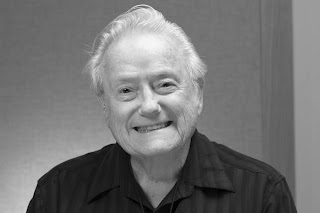The drive from a particular little town in Indiana to my particular little town in Illinois takes almost precisely two hours (assuming speed limits are obeyed). On one of these drives back to my little town, traffic was particularly bad so the drive was considerably longer. It took so long, in fact, that the Top 40 radio station I usually listen to started replaying the big hits it had played not too long ago. This means I got to hear Linkin Park's Shadow of the Day twice during my extended drive home. When I finally got home, I took off my jacket, sat down on the couch, and cried.
Now, this little bit is a first-person story told with the view of third-person perspective. It is a story I told about an event I experienced and now retell. All the events are factual, and while I omitted certain details like town names and the specific radio station as personal choices, the events and timeline all match reality. It was a very emotional experience, and will stay with me for the rest of my years.It is, however, not much of a story.
Why is this not much of a story? Well, it's my story, but telling it from an outside perspective means the story is communicated without the very personal touch - in effect, my story without me in it. The emotions I felt were all internal at that time, so the outsider might not understand what was going on. From the outside, this is a factual retelling about a long, lonely drive while listening to a Top 40 station that ended in tears. That, however, is not where the storytelling is. The story is internal, and needs a first-person perspective to mean something more.
For those who do not know, Shadow of the Day is a great, though very sobering song about all things coming to an end. If I had included those lyrics, maybe the story gets a little more compelling, but it still lacks any personal reactivity. However, if I use the lyrics as a tool to play off the internal processes, then I can generate a whole array of feelings and emotions. In fact, the internal part becomes very reactive at that point - even creating its own mood.
Probably the most important part of the internal storytelling that would change this story would be my internal setting. That drive was the return trip from my father's funeral. He had died quite unexpectedly, and my coping mechanisms were having trouble processing such a life-altering event. Now, none of that exists in the story, but the inclusion of how I made that lonely drive along a crowded highway, my only company those very depressing lyrics, does more than fill in the gaps that ended with me in tears. It takes the reader on a journey through my mind, and they experience what I experience. That's the importance of the internal perspective when telling the true story.
The point here is simple. Just because an event happened does not mean the story begins and ends with it. The real story is an exposition of how events move us, change us, and shape the world around us. The fact that we drove for hours on the highway is not as good a story as how we react to the journey.




